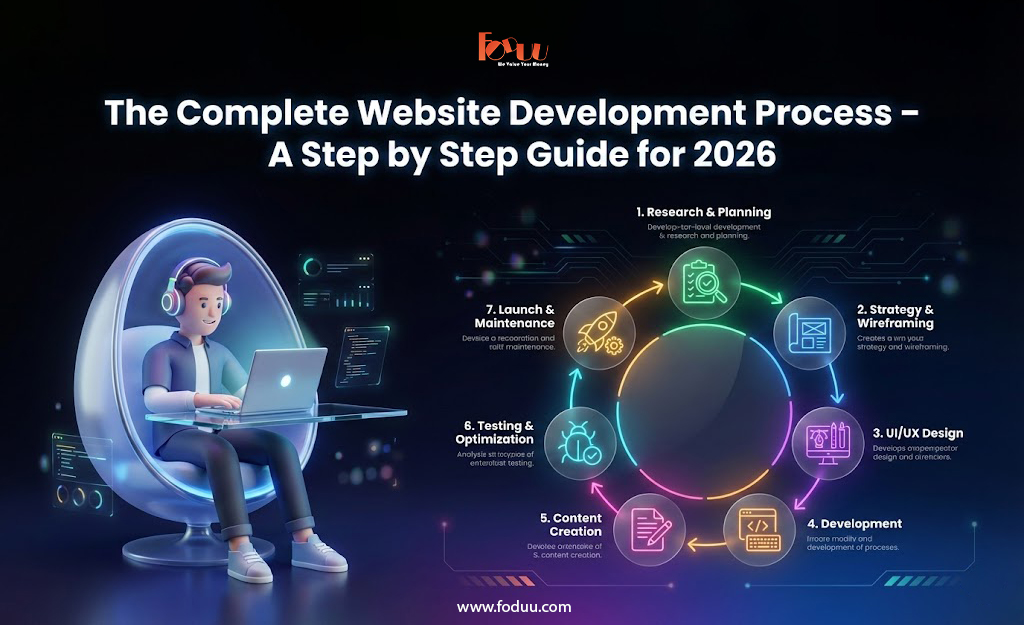Machine learning technology helps improve companies in every industry sector worldwide. To achieve ML solution success businesses must select an experienced development company for their project needs. Finding the ideal partner for ML development proves difficult because AI and ML have intricate technical requirements.
Businesses that use AI solutions need to partner with an ML development company in India that matches their unique requirements and delivers smart ideas along with exceptional work products. Several important criteria need to be reviewed, so companies can choose an ML development partner successfully. You need to assess these top ten criteria when picking ML development companies to find the best partner.
1. Expertise and Experience in Machine Learning
Why It Matters:
A professional in machine learning brings expertise in data science, AI applications and algorithm development to the profession. A company's years in machine learning suggest their ability to create and execute effective ML solutions.
What to Look For:
Years of experience in ML development.
A complete set of previous ML projects that work with various business areas.
Successful machine learning experiences along with their effect on business performance.
Organizations need their ML department to consist of skilled experts who combine academic knowledge and real-world work history.
Show evidence of your recent research work in AI and ML fields.
Questions to Ask:
Share details about your past ML project work that you completed successfully.
Please give examples of past work with clients and provide sources.
Describe the problems you faced during your ML work and describe how you solved them.
2. Technical Competence and Technology Stack
Why It Matters:
A good ML development firm should be skilled in different programming languages, frameworks, and tools employed in ML development. Their capability to work with numerous technologies guarantees flexibility and compatibility with your current systems.
What to Look For:
Programming language expertise in Python, R, Java, and C++.
ML framework and library experience in TensorFlow, PyTorch, Scikit-learn, and Keras.
Experience with cloud platforms such as AWS, Google Cloud, and Azure for ML deployment.
Knowledge of big data technologies like Apache Spark, Hadoop, and Kafka.
Good understanding of databases (SQL, NoSQL, MongoDB) and data engineering tools.
Knowledge of model deployment and MLOps best practices.
Questions to Ask:
What programming languages and frameworks are you an expert in?
Are you able to integrate your ML models with our current infrastructure?
How do you approach model deployment and performance tuning?
Related Post: Business Benefits of Artificial Intelligence (AI)
3. Industry-Specific Experience
Why It Matters:
ML applications are industry-specific, and a domain-experienced company will grasp the specific problems and solutions more effectively. Having experience in your field guarantees that the company gets the nuances and regulatory aspects involved.
What to Look For:
Experience in your industry (e.g., finance, healthcare, e-commerce, manufacturing, etc.).
Success stories in creating ML solutions for companies with similar types of businesses.
Knowledge of compliance and regulations in your field.
Knowledge of industry-specific datasets and issues.
Questions to Ask:
Do you have prior experience working on ML projects in our industry?
How do you handle industry-specific compliance and security issues?
Can you present case studies of ML solutions in our industry?
4. Data Handling and Security Compliance
Why It Matters:
ML models are based on huge datasets, which may contain sensitive customer or business data. It is essential to ensure data security and compliance to avoid breaches and legal trouble.
What to Look For:
Compliance with data privacy regulations (GDPR, CCPA, HIPAA, etc.).
Secure data handling practices such as encryption and access control.
Experience with data anonymization and differential privacy methods.
Strong data pipeline management to maintain accuracy and integrity.
Questions to Ask:
How do you maintain data privacy and security?
Do you follow industry-specific data protection regulations?
What steps do you take to avoid data breaches and unauthorized access?
5. Custom ML Solutions vs. Pre-Built Models
Why It Matters:
Each business has specific needs, and some will need custom ML solutions while others will be well-suited to pre-trained models. Getting the right approach can save time and money.
What to Look For:
Capacity to create customized ML models according to business requirements.
Familiarity with both custom ML solutions and pre-trained models.
Readiness to advise on the best approach for your project based on ROI analysis.
Questions to Ask:
Do you provide custom ML solutions or utilize pre-trained models?
What are the pros and cons of each method?
How do you decide on the optimal solution for our business requirements?
6. Scalability and Deployment Capabilities
Why It Matters:
An ML solution must be scalable and deployable with ease to accommodate growing data and computational needs as your business expands. Future-proofing guarantees long-term success.
What to Look For:
Ability to create scalable ML models that can process big data effectively.
Background in cloud-based deployment and edge computing platforms.
On-prem, hybrid, and multi-cloud ML solution support.
Questions to Ask:
Does your ML solution scale with our business?
What cloud-based deployment options are available?
How do you tune ML models for real-time performance?
7. Post-Development Support and Maintenance
Why It Matters:
ML models need constant tuning, updating, and monitoring in order to keep working effectively. A quality ML development company ought to provide long-term support.
What to Look For:
Post-development support.
Model update frequency and performance measurement.
Timely issue fixing and customer support readiness.
Questions to Ask:
What type of support do you provide after the project is completed?
How frequently do you optimize and update ML models?
Do you offer real-time monitoring and error detection services?
8. Project Management and Communication
Why It Matters:
A properly managed ML project guarantees on-time delivery, clear expectations, and seamless cooperation among teams.
What to Look For:
Iterative improvement Agile development methodologies.
Project managers dedicated to monitoring progress.
Regular updates and open communication.
Questions to Ask:
How do you organize ML development projects?
What communication tools and processes do you use?
How do you align with our business objectives?
Related Post: 10 Questions to Ask Before Hiring an AI Development Company
9. Cost and Budget Considerations
Why It Matters:
ML development can be costly, and it's important to strike a balance between cost and quality.
What to Look For:
Clear pricing models.
Cost breakdown (development, deployment, maintenance, etc.).
ROI analysis and projected value from the ML solution.
10. Client Reviews and Testimonials
Why It Matters:
Client reviews give an indication of the company's reliability, professionalism, and capacity to deliver quality ML solutions.
What to Look For:
Online reviews and ratings.
Previous client testimonials.
Recommendations from industry experts.
Conclusion
Selecting the right machine learning development company India is an important choice that can make or break the success of your AI-based projects. By thoroughly considering aspects like experience, industry knowledge, technical expertise, data security, scalability, and pricing, companies can make sure they are working with a trusted and competent team.
An appropriately selected Machine Learning Company in India will not only provide innovative solutions but also maintain support and flexibility as technology advances. Investing time to evaluate prospective partners well will eventually result in more effective, scalable, and high-performance ML solutions that enable innovation and business growth.











